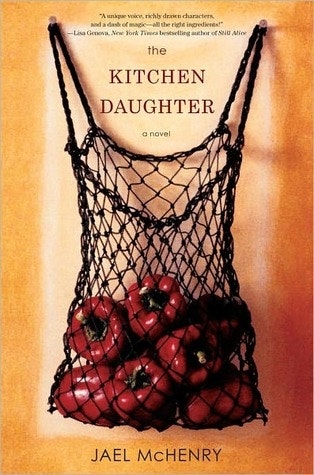The Kitchen Daughter

Ginny undergoes a great transformation through the course of the novel. Compare the early version of Ginny with the woman she is by the end. Do you feel she has changed? In what ways?
The title of the novel is The Kitchen Daughter. Discuss the significance in relation to the story. What does the kitchen teach Ginny? How does trust, both in and out of the kitchen, play a part in Ginny’s shifting perspectives?
"Food has power. Nonna knew that. Ma did too. I know it now. And though it can’t save me, it might help me, in some way." (p. 45) Do you agree with Ginny that food has power? What did food and the kitchen do for Ginny? Is there something you turn to such as cooking, cleaning, or organizing as a means of coping with your emotions? Or is there a place you go to (as Ginny goes to the kitchen) that makes you feel safe?
Many times throughout the story, Amanda appears domineering and high-handed. But do you think Ginny is also quick to judge her sister? Did you relate more to one or the other? Why do you think Amanda feels she has to assume the role of the older sister?
Ginny observes, “They say you learn by doing, but you don’t have to. If you only learn from your own experience, you’re limited.” (p. 38) If Ginny had applied this advice outside of the kitchen, do you think she might have had an easier time relating to her sister? Do you agree with her observation, or do you think avoiding mistakes others have made is a different way of limiting yourself?
Discussing Elena’s death, David remarks that it might have been better if he had never met her. He says, “I wouldn’t have ever loved her, and that would’ve been my loss, but how bad is a loss you don’t know about? You can’t mourn all the people you could’ve loved but didn’t. You mourn the ones you loved and lost.” (p. 245) Do you agree with his statement? Why or why not?
Gert warns Ginny not to summon the spirit of Elena, but Ginny doesn’t listen. Would you have done the same? Why or why not? If you were in David’s shoes, would you want to see the spirit of someone you loved? If Elena had appeared the first time Ginny cooked her dish, do you feel things might have ended differently?
Do you think Ginny asked the right questions of the spirits she summoned? What would you have asked if you were in her place?
How did you feel about the way Amanda tricked Ginny into going to see Dr. Stewart? Do you think Ginny would have gone to see someone eventually, if Amanda hadn’t forced her? Is it a situation where the end justifies the means? Why do you think communication between the two sisters was so difficult?
Along with the kitchen, Ginny often turns to the Normal Book to calm herself. She tells David, "See? Normal means a lot of things to a lot of people. You’re normal. Don’t worry. It’s okay." (p. 269) Do you agree with her? Do you think normal is a term that has a single definition, or not? Do you think we try too hard to label people as one thing or another?
The theme of appearance, in opposition to reality, is central to the book. What are some of the obvious, and not so obvious, examples of this idea? What does Ginny come to understand about the way things appear versus the way they truly are?
Ginny’s father hid a very important secret from his family. Do you feel he was right to keep both his and Ginny’s condition a secret from Ginny and Amanda? Do you think by trying to protect her, he ultimately did her a greater disservice?
